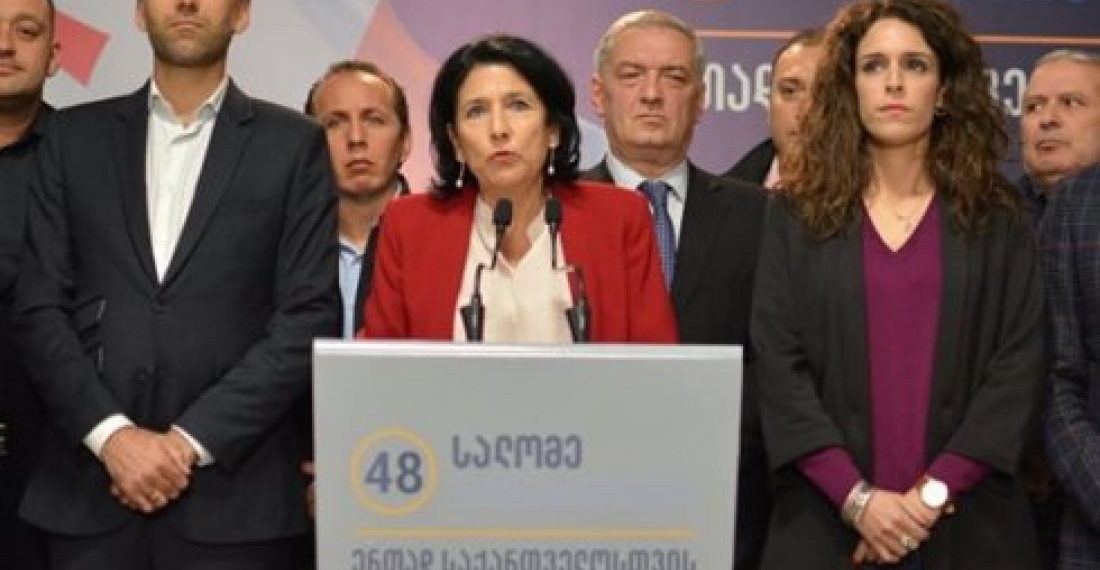Саломе Зурабишвили заявила, что она будет бороться и полна решимости выиграть во втором туре президентских выборов в Грузии. Зурабишвили тупила с телевизионным обращением после появившихся во вторник слухова, что она собирается отозвать свою кандидатуру. Зурабишвили заняла первое место в первом раунде президентских выборов в Грузии, прошедших в воскресенье, но не смогла набрать 50% голосов для победы в нем. Слухи подпитывались про оппозиционной телекомпанией «Рустави-2», которая цитировала источники в правящей партии.
Зурабишвили отклонила прозвучавшие слухи: "Они, вероятно, не знают меня хорошо, они не знают, насколько я упрямая, они не знают, что я готова бороться до конца для нашего народа и нашей страны", - сказала она. "Я готова конкурировать, потому что я верю в вас ... и в вашу мудрость, я считаю, вы знаете, что хотите для Грузии, я считаю, вы знаете, что сегодня мы не делаем выбор между двумя кандидатами или двумя сторонами - сегодня мы делаем выбор в отношении того, какую Грузию мы хотим иметь в будущем".
На президентских выборах, состоявшихся в воскресенье, Саломе Зурабишвили, которую поддержала правящая Грузинская Мечта (ГД), получила 38,64% голосов избирателей, а Григол Вашадзе, поддержанный оппозиционным Единым Национальным Движением (ЕНМ), занял второе место с 37,74%. Второй тур ожидается не позднее 2 декабря.
Между тем международное сообщество дало в значительной степени положительную оценку избирательному процессу, хотя и были отмечены ряд проблем и недостатков международными миссиями по наблюдению.
Ранее на этой неделе Европейский Союз дал оценку прошедшим выборам. В заявлении, сделанном представителем Европейской службы внешних действий, говорится, что:
Согласно предварительным выводам Миссии ОБСЕ / БДИПЧ по наблюдению за выборами, выборы были "конкурентоспособными и профессионально организованными". Некоторые недостатки были отмечены в ходе всей кампании и в день выборов, в частности случаи злоупотребления административными ресурсами, резкая поляризация частных СМИ, негативная агитация и суровая риторика. Эти недостатки следует решать на основе рекомендаций ОБСЕ / БДИПЧ.
Обеспечение высоких демократических стандартов на протяжении всего избирательного процесса, включая второй раунд, остается ключевым. Важно, чтобы все стороны продолжали придерживаться демократических принципов и уважали волю грузинского народа.
Европейский Союз поддерживает демократическую, стабильную и процветающую Грузию, в том числе ее активное гражданское общество. Мы с нетерпением ожидаем укрепления дальнейшего сотрудничества с Грузией для продвижения политической ассоциации и экономической интеграции и выполнения совместных обязательств по Соглашению об ассоциации.
источник: commonspace.eu







